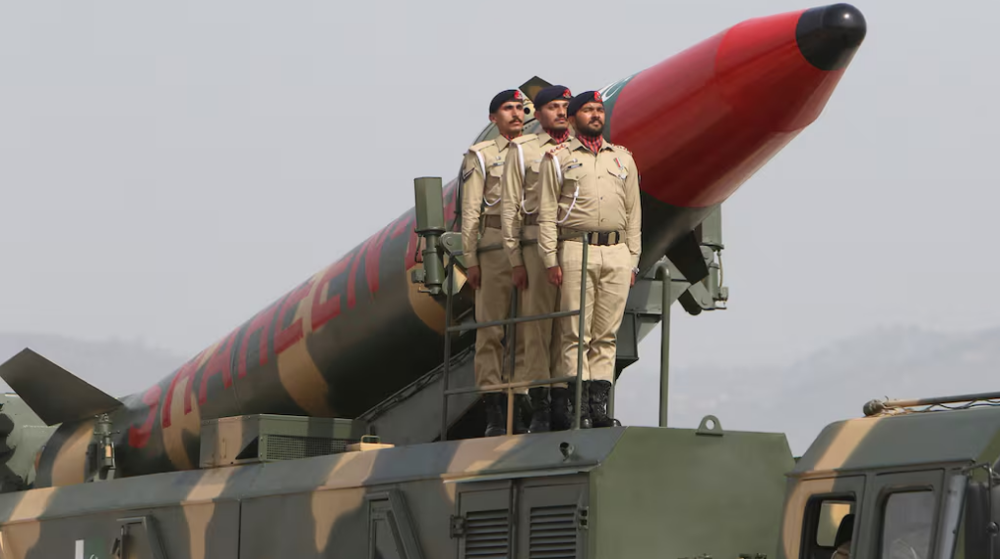Pakistan dismisses US official’s allegations about missile program as ‘unfounded’
Pakistan’s Foreign Ministry has dismissed allegations raised by a senior US official that Islamabad’s ballistic missile program poses a threat to US security as “unfounded” and “devoid of rationality.”
On Thursday, Jon Finer, the Biden administration’s deputy national security adviser, claimed that Islamabad’s missile program raises “real questions” about its intentions.
“Pakistan has developed increasingly sophisticated missile technology, from long-range ballistic missile systems to equipment that would enable the testing of significantly larger rocket motors,” Finer said. “If these trend lines continue, Pakistan will have the capability to strike targets well beyond South Asia, including in the United States.”
He made these comments a day after Washington announced a new round of sanctions related to “four entities contributing to Pakistan’s ballistic missile program.”
Responding to media queries on Finer’s remarks and the new round of sanctions on Saturday, Pakistan’s Foreign Ministry spokesperson Mumtaz Zahra Baloch said “The alleged threat perception from Pakistan’s missile capabilities and delivery means, raised by the US official, are unfortunate.”
“These allegations are unfounded, devoid of rationality and sense of history,” she said.
Baloch emphasized the long-standing positive relationship between Pakistan and the US, calling such allegations counterproductive to their cooperation.
She argued that the recent US allegations towards “a major non-NATO ally would be unhelpful for the overall relationship, especially in the absence of any evidence.”
Baloch stressed that Pakistan has never had any hostile intentions toward the US. She highlighted the toll that US policies in the region have taken on Pakistan and the country’s sacrifices in maintaining the bilateral relationship.
“Pakistan has never had any ill-intention towards the US in any form or manner, and this fundamental reality has not changed. On the contrary, Pakistan has made monumental sacrifices for this relationship and continues to suffer hugely in sustaining the onslaught of the aftermath of US policies in the region,” Baloch said.
She also maintained that Pakistan had been wrongfully linked to nations perceived as adversaries of the US. She referred to the apparent discrepancy in how missile capabilities in neighboring India were being handled by the US.
Concerns about Pakistan’s ballistic missile program were being raised to further destabilize the region’s fragile strategic balance, Baloch said.
She stated that her country’s ballistic missile capabilities are designed to defend its sovereignty and ensure peace and stability in South Asia. She further emphasized Pakistan’s right to continue the development of its defense capabilities as deterrence against regional threats.
She indicated Pakistan’s willingness to engage with the US on security and stability issues and emphasized the importance of a balanced approach based on the two countries’ history of cooperation and friendship.
D-8’s role in Iran’s economy after Cairo summit
China slams US as ‘war-addicted’ threat to global security
China ‘firmly opposes’ US military aid to Taiwan
VIDEO | Press TV's News Headlines
President Yoon Suk Yeol to be removed from office
At least 19 Gazans killed by Israeli airstrikes since dawn: Medics
Leader: Iran neither has nor needs proxy forces
US fighter aircraft shot down ‘in friendly fire’ amid aggression on Yemen










 This makes it easy to access the Press TV website
This makes it easy to access the Press TV website